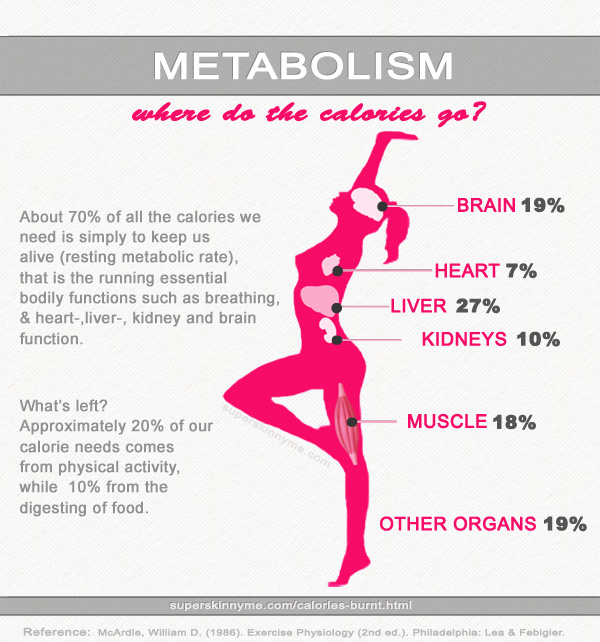The Cyborg Solution For The Android Problem?
No Fat on this Female Cyborg
UK scientists have come up with a solution to combat the Android Problem – fit us with cyborg technology!
What is the “Android Problem”? Well, before the term belly fat became so common place, health scientists used to refer to increasing waistlines as the Android Fat Distribution. We spoke about this in our article which discusses the Global Obesity Crisis. So, the new technology will help people lose weight. But what is it, and how does it work?
Prof Chris Toumazou and Prof Sir Stephen Bloom of Imperial College London have lead research to develop an electronic implant which can control signals sent along the vagus nerve. Prof. Bloom specialises in diabetes and metabolism, and Prof. Toumazou heads up the Biomedical Engineering department, as well as running several medical device companies.
The Vagus Nerve
The vagus nerve connects the brain with the abdomen and controls many bodily functions, including heart rate and blood pressure. It can also control glucose production in the liver by decreasing the production of gluconeogenic enzymes (enzymes that are needed to convert glycogen into glucose) – if the liver produces less glucose, the only other option for energy is to break down adipose tissue reserves (fat) so that the body can use fatty acids and glycerol for energy (see our article What Is Fat? for a fuller explanation). The vagus nerve can also control appetite – it is one of the reasons why we want to eat.
Vagus Nerve (drawing from Gray’s Anatomy),
The Imperial team have developed the Intelligent implantable modulator of Vagus nerve function for treatment of obesity’ (i2MOVE). The electronic implant is just a few millimetres long and is attached to the vagus nerve within the peritoneal cavity, inside the stomach area. It reads the electrical signals and chemical signatures that pass along the vagus nerve and then respond by generating its own signals which block the appetite signal.
So this tiny piece of electronic equipment will essentially change the way you think – you will stop wanting to eat sooner. One of the main benefits of this approach is that rather than simply turning off the desire to eat, it actively manages your appetite, so slows down the speed at which you wish to consume food.
Of course, it is still in experimental stages. Testing has been carried out on animals and it is hoped that human trials will commence within the next few years. Should the device prove to be successful, obese people may have the option of being turned into cyborgs so that they can better manage their appetite and improve their weight and health.
The UK scientists are not alone in using vagal manipulation to develop weight loss treatment.
VBLOC® Vagal Blocking Therapy
EnteroMedics in the USA have developed an implant which can block the vagus nerve. Trials showed that the VBLOC device can help people lose up to 20% of their excess weight. While this is promising, the results were not as significant as was hoped.
Abiliti’s Gastric Pacemaker
The Abiliti system has been developed by IntraPace, and has been described as a gastric pacemaker. They describe it as the worlds first “intelligent obesity intervention“. Abiliti detects when we eat or drink and then sends signals which make us feel full. The abiliti® system has received the CE Mark in the European Union. Currently there are doctors in the UK, Spain, Germany and Italy who can install the device, details are on Abiliti.com.
The Imperial College team have received €25m from European Research Council to continue researching this new approach to weight management.
However, all this does lead to an important question: why do we find it so hard to control our own willpower? Ultimately, it is our concious self who picks the food up and puts it in our mouths. Why can’t we control this concious self? Many people obviously do manage to control their appetites very well, and around a third of the population is still of a healthy weight (latest figures from CDC.gov say that 69.2% of people are overweight or obese, based on their BMI). But for those who cannot, is cyborg technology the only viable option? Or is it the final straw?
References / Further Reading
Imperial scientists receive grants of over €25m from European Research Council by Michael Jones, 08 January 2013. Imperial.ac.uk
EnteroMedics’ ReCharge Trial Demonstrates Statistically Significant Weight Loss in Obesity But Does Not Meet Predefined Efficacy Endpoints. Press Release by EnteroMedics Inc., published on SEC.gov on Feb 7, 2013.
Vagus nerve stimulation acutely alters food craving in adults with depression by Jamie S. Bodenlos, Samet Kose, Jeffrey J. Borckardt, Ziad Nahas, Darlene Shaw, Patrick M. O’Neil, Mark S. George. Appetite Volume 48, Issue 2, March 2007, Pages 145–153
Vagus nerve stimulation confuses appetite: comment on Bodenlos et al. (2007). Appetite. 2008 Jul;51(1):223-5; discussion 226-30. Epub 2007 Oct 26.
Photo credit: Female Cyborg by trantt28.
-
How Effective Are Natural Weight Loss Pills For Burning Fat?
You may have taken the usual route when it comes to your weight loss--
-
Diagnosed With a Herniated Disc? Get the facts on what really causes it and how to get relief
What is a herniated disc?Youve probably heard people say they have
-
If You Want To Lose Weight, Try Matcha
Are you totally addicted
-
Weight Loss Techniques - Different Diets That Work
There are a lot of diet plans out there which are tackling the weight
-
Natural Weight Loss And Acai Berry
With the number of lifestyle diseases present nowadays such as diabete
-
How to Win at Losing Weight
Losing weight can be a daunting task! Yo
- DON'T MISS
- Stop Wasting Your Workouts, Eat After!
- Healthy Weight - Thinking Like a Thin Person
- Fast Weight Loss Diet Plan
- A Proven Strategy To Lose Weight Without Dieting
- The Real Life Theory of ‘Fat and Jolly’
- Secrets Of Gastric Bypass Surgery Lose Weight Without Surgery
- Craving Carbs? 3 Healthy Ways to Satisfy Your Craving
- #WeSeeYou: Man Loses Weight By Faith
- Weight Lifting Programs: Why They Should be Incorporated Into Your Fitness Goals
- Exercises To Reduce Stomach Fat




